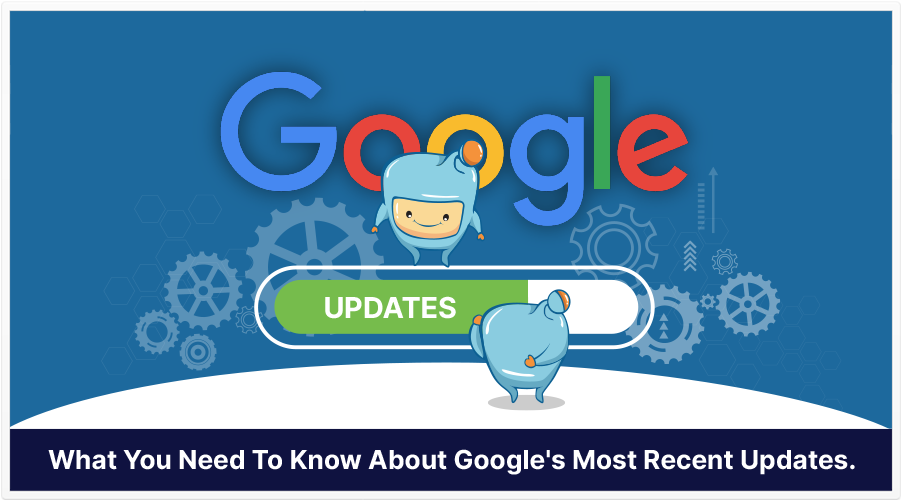
A new article appeared on JumpFly.com, titled 7 Google Algorithm Updates in 5 Weeks.
As it’s title implies, the article talks about the 7 most recent, most significant Google algorithm updates.
(Google is said to make about 1 algorithm change per day, but these changes are so imperceptible that they go widely unnoticed.)
In this article, I won’t talk about each of these 7 in great detail. Instead, I’ll narrow these down to the ones that I think make the most impact.
If you were to try to define what, exactly a Google update is, you’d probably come close to defining what these broad updates are. They’re exactly that: broad. They’re a general tweaking of any number of criteria that are part of Google’s algorithms. They’re part of the Web Spam Team’s ongoing endeavor to try to present relevant search results.
We all know that bullying and harassment can be big problems for some people. This update is part of Google’s effort to try to reduce the prevalence of harassment-based sites in its search results.
Ah, yes, the big one. You’ve probably heard of this one.
As the name implies, Google feels that users who come to your page should have a positive experience.
Have you ever gone to a web page (especially a mobile page, as this is really noticeable on mobile devices) and seen elements of the page bounce up and down?
You try to scroll past an ad block to start reading the content, but as images continue to load, they push the page up or down, making for a bit of a jarring experience.
That, of course, is not a positive page experience, and Google is trying to reward pages that don’t let that happen to their visitors.
Also, have you noticed recently that people in the search engine optimization (SEO) industry have been increasingly talking about page speed?
That’s because page speed (specifically, how high a page scores in Google’s Page Speed Insights tool), is a part of this update.
These were each listed as a separate update, because they were launched 5 days apart. That said, because #2 is basically a continuation of #1, I’ve listed them together.
Multitask Unified Model. Yes, that’s a mouthful. A Google blog post says it’s “A new AI milestone for understanding information.” It not only understands language, but generates it. It also understands tasks.
But that’s all well and good. What we really want to know is, what do these updates imply for us as Internet entrepreneurs?
Quite simply, I think these implications only confirm what good, honest businesses have known: avoid the nonsense, and continue to build web pages that give the user a good experience.
That said, what I find intriguing is the Multitask Unified Model. It’s said to be 1000 as powerful as BERT, which had models applied to search.
From reading Google’s blog, what I understand is that MUM can anticipate searches and try to predictably offer relevant results. For example, if a searcher enters a query for a given mountain, and they then enter a query for another mountain nearby, MUM’s task algorithms may realize that this searcher is probably a hiker who’s comparing two nearby mountains. It may then consider displaying elevation and other information a hiker may want to know.
So, if you can think along this type of predictive search paradigm, you can really keep on the cutting edge of Google updates.
Source: JumpFly.com